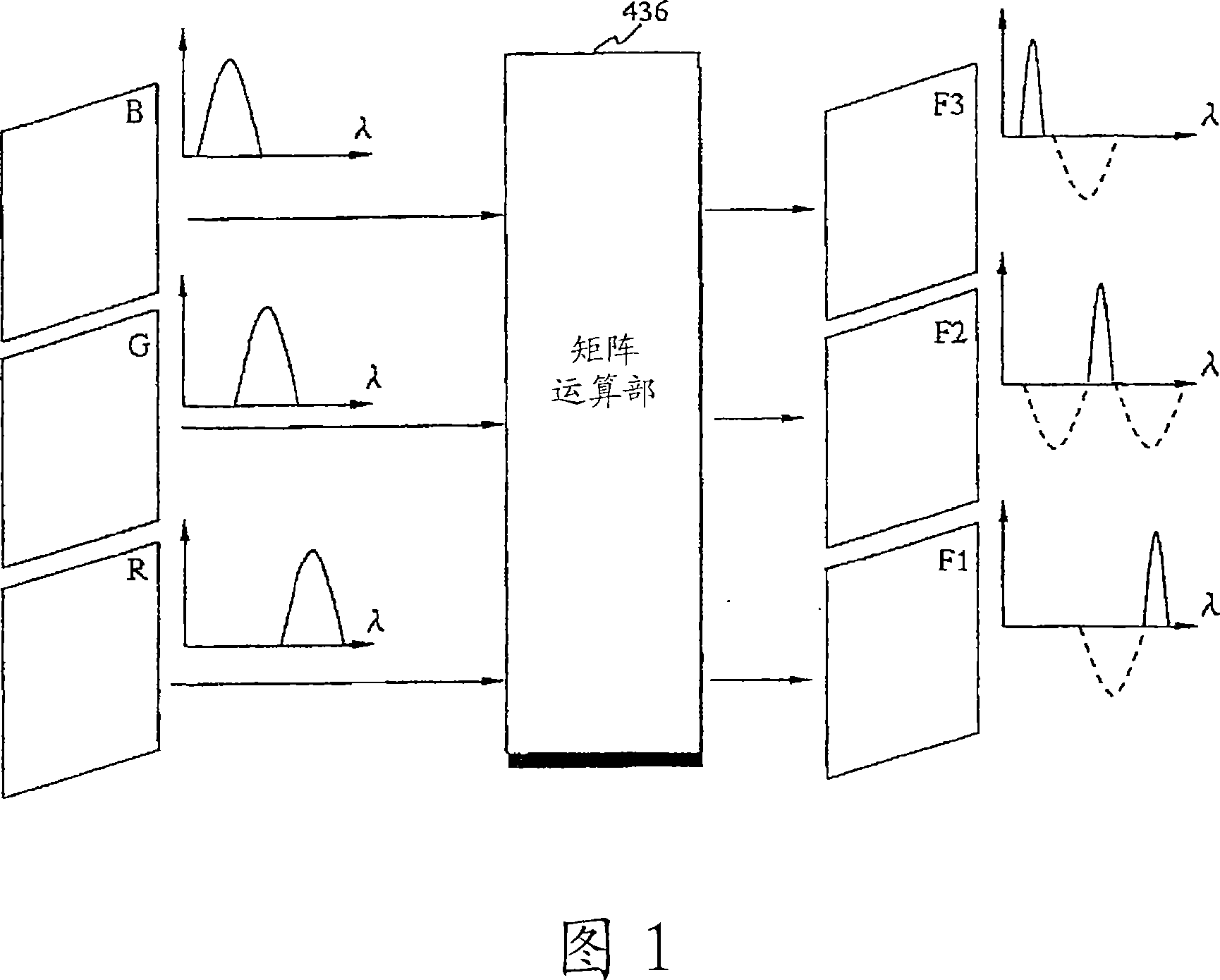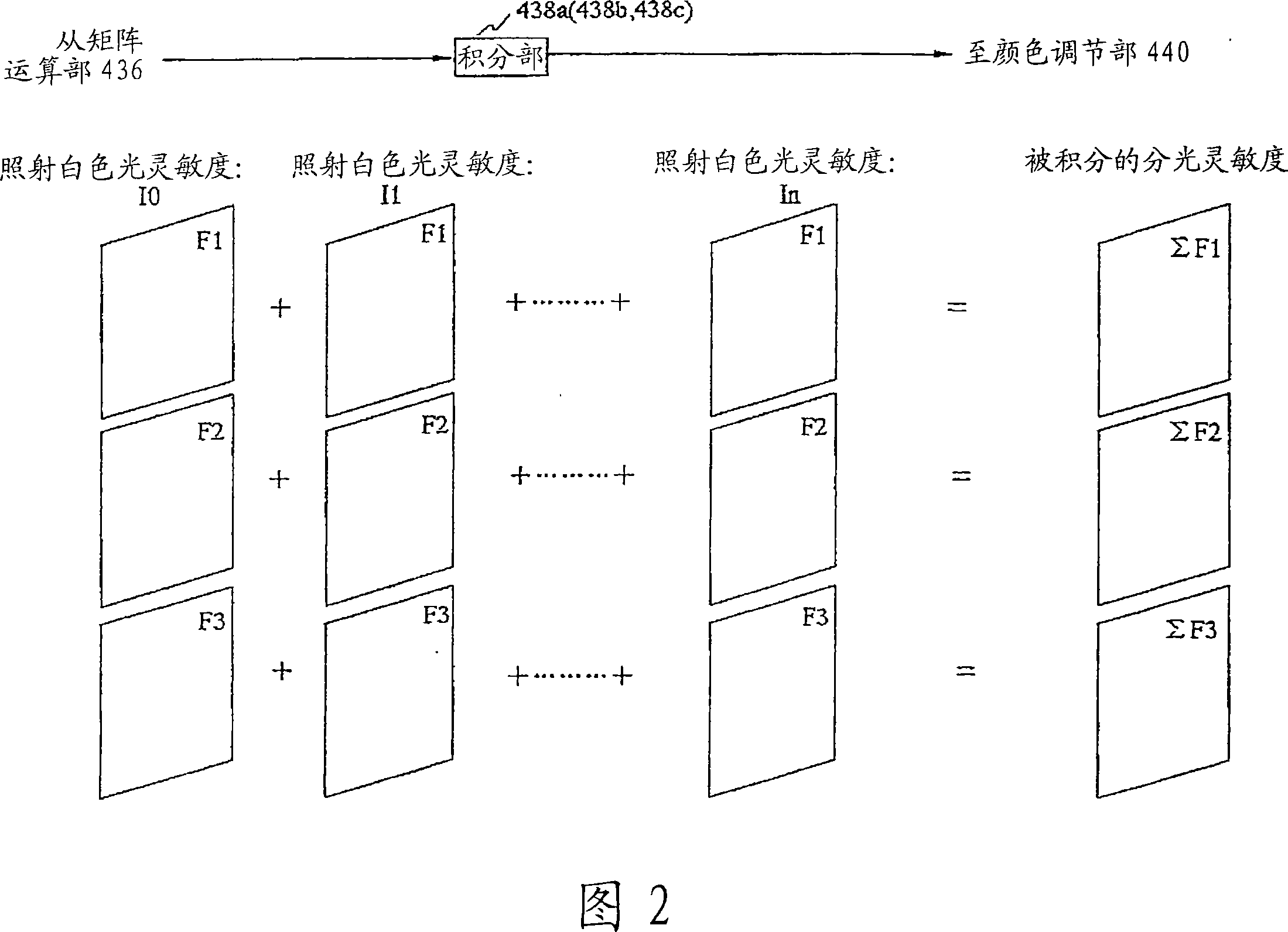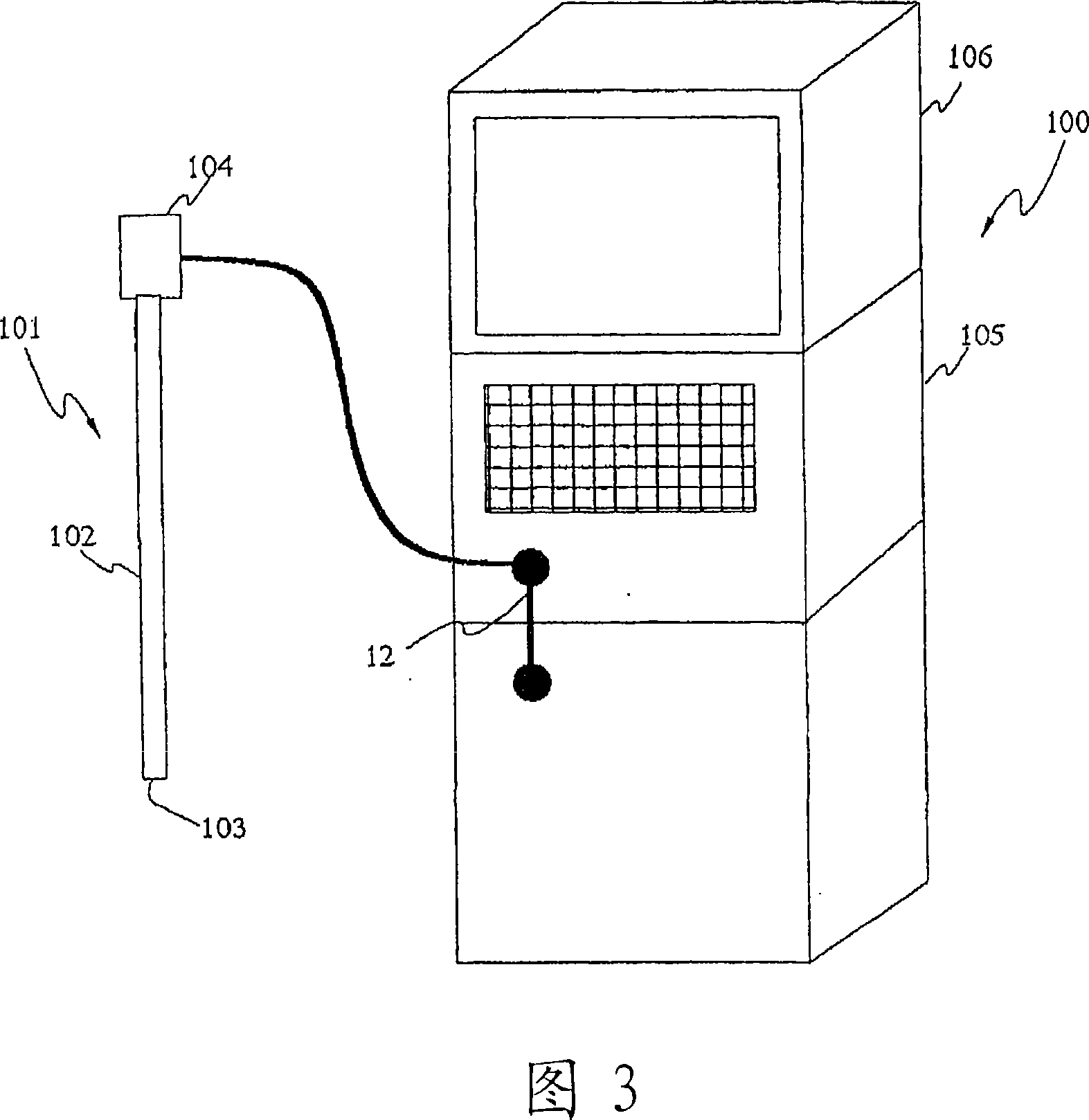Biological observation apparatus
A technology for observation devices and living organisms, which can be used in medical science, surgery, diagnosis, etc., and can solve the problems of reduced identification and increased circuit scale
- Summary
- Abstract
- Description
- Claims
- Application Information
AI Technical Summary
Problems solved by technology
Method used
Image
Examples
Embodiment 1
[0075] FIGS. 1 to 26 relate to Embodiment 1 of the present invention. FIG. 1 is a conceptual diagram showing a signal flow when a spectral image signal is generated from a color image signal, and FIG. 2 is a conceptual diagram showing an integration operation of the spectral image signal. , FIG. 3 is an external view showing the appearance of the electronic endoscope device, FIG. 4 is a block diagram showing the structure of the electronic endoscope device of FIG. 3 , and FIG. 5 is an external view showing the external appearance of the shutter of FIG. 4 , FIG. 6 is a diagram showing the arrangement of the color filter arranged on the imaging surface of the CCD of FIG. 3 , FIG. 7 is a diagram showing the spectral sensitivity characteristics of the color filter of FIG. 6 , and FIG. 9 is a spectrogram showing the spectrum of a light source, and FIG. 10 is a spectrogram showing a reflection spectrum of a living body.
[0076] 11 is a diagram showing the layered structure of livin...
Embodiment 2
[0291] FIG. 28 is a block diagram showing the configuration of an electronic endoscope device according to Embodiment 2 of the present invention.
[0292] Since the second embodiment is substantially the same as the first embodiment, only the points different from the first embodiment will be described, and the same components will be given the same reference numerals and their descriptions will be omitted.
[0293] In this embodiment, compared with the first embodiment, the light source unit 41 that controls the amount of illumination light is different. In the present embodiment, the control of the amount of light emitted from the light source unit 41 is performed by controlling the current of the lamp 15 instead of using a shutter. Specifically, the lamp 15 shown in FIG. 28 is provided with a current control unit 18 as a light quantity control unit.
[0294] As the operation of the present embodiment, the control unit 42 controls the current flowing through the lamp 15 so ...
Embodiment 3
[0298]In the living body observation device of FIG. 4 , when acquiring a spectroscopic image, the shutter 16 of FIG. 5 that controls light quantity by blocking light at predetermined time intervals is used to control so as to reduce the light quantity. That is, the amount of light from the light source is reduced so that all color-separated signals of R, G, and B are captured within an appropriate dynamic range.
[0299] In Embodiment 3 of the present invention, an example is described in which movable light-shielding members such as diaphragm springs and shutters, light-shielding filters such as mesh turrets, and ND filters are used instead of the living body observation device of FIG. 4 The shutter 16 in.
[0300] FIG. 29 shows an example of the diaphragm spring 66 . The diaphragm spring 66 controls the amount of light by blocking light at predetermined time intervals by means of the diaphragm blade portion 71 which rotates around the central axis 67 and has a blocking port...
PUM
 Login to View More
Login to View More Abstract
Description
Claims
Application Information
 Login to View More
Login to View More - R&D
- Intellectual Property
- Life Sciences
- Materials
- Tech Scout
- Unparalleled Data Quality
- Higher Quality Content
- 60% Fewer Hallucinations
Browse by: Latest US Patents, China's latest patents, Technical Efficacy Thesaurus, Application Domain, Technology Topic, Popular Technical Reports.
© 2025 PatSnap. All rights reserved.Legal|Privacy policy|Modern Slavery Act Transparency Statement|Sitemap|About US| Contact US: help@patsnap.com



